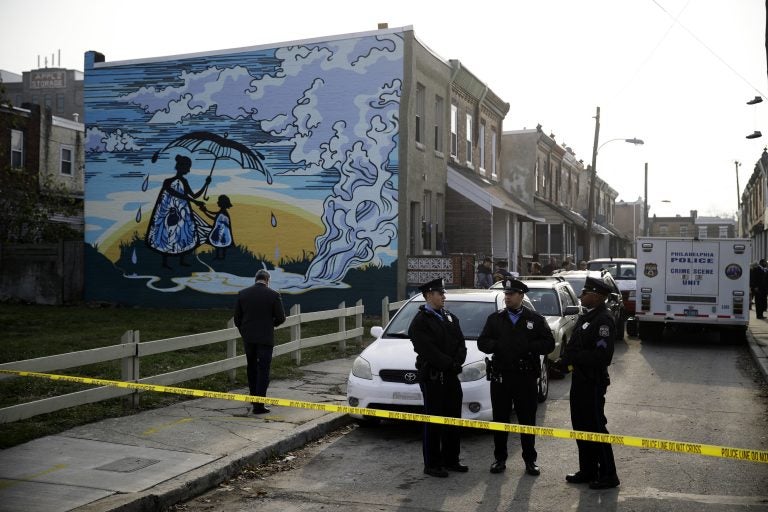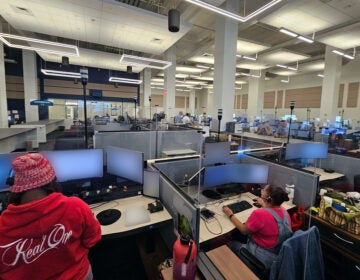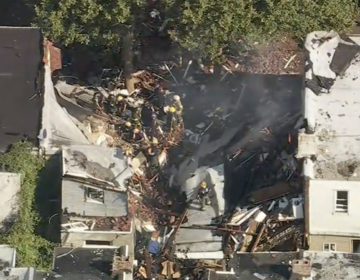Time to start lifting each other
We have to stop killing each other.

Police gather at the scene of a fatal shooting in the center row home in Philadelphia, Monday, Nov. 19, 2018. Police say two men and two women have been found shot and killed in a basement in Philadelphia. (AP Photo/Matt Rourke)
We have to stop killing each other.
Those words repeated in my mind when I heard that four people were shot dead in a West Philadelphia basement, just days after 20-year-old Derek Hill was killed by a man and three women who attacked him with hammers and knives.
Hill’s grisly murder was especially disturbing for me. He was killed just two blocks from Rowen Elementary, the school I attended as a boy. When I was 9, I routinely walked half a mile to get to that school, and I was never afraid or apprehensive, because I always knew that I was safe.
Ours was a neighborhood where people cared for each other. In truth, most of Philadelphia’s black neighborhoods were that way. But while the vast majority of the city’s African Americans continue go to work every day and live as law-abiding citizens, there is a minority in our community that has come to value things more than people; that seeks respect at the end of a gun. That must change, but it will require us to choose scholarship over violence.
This year, Philadelphia has been rocked by more than 300 murders—many of them involving young black men. In a country where people have been killing blacks since we came to these shores, we can no longer afford to contribute to our own demise.
No one should die over a personal slight that could be settled with words. No one should take a life for the right to sell drugs on a corner they will never own. No one should kill in the quest to be the richest man in a neighborhood beset by poverty.
We can solve the violence in our most challenged communities, and here’s how we can do so. Instead of enduring stories like Derek Hill’s, we must create more stories like Anea B. Moore’s. She’s a senior at Penn who just became a Rhodes scholar. That means she’ll get $70,000 a year to go to school in England, and in doing so, she will join an exclusive group of academics like former president and Rhodes Scholarship recipient, Bill Clinton.
Anea’s road wasn’t easy. She grew up in Southwest Philly with parents who worked as secretaries. Her father died of lung disease when she was in high school, and her mother died of a heart attack during Anea’s first year at Penn.
But even after losing her parents, she never made excuses. She never gave up. She simply kept pushing and helping younger students to succeed. Now she’ll study at Oxford University in England, where she’ll earn a doctorate in social policy, and then she will likely make more money than most Philadelphians will ever see.
That’s because scholars make dollars, and they don’t have to kill anybody to do so. Scholars make dollars, and they don’t have to throw their lives away to earn respect. Scholars make dollars, and they never have to go to prison to prove themselves.
If we’re ever going to stop killing each other in our most challenged communities, we first have to start lifting each other. We can do that if we believe in the power of learning, because scholars make dollars. And killing doesn’t make any sense.
—
Listen to Solomon Jones weekdays from 10 to Noon on Praise 107.9 FM
WHYY is your source for fact-based, in-depth journalism and information. As a nonprofit organization, we rely on financial support from readers like you. Please give today.





